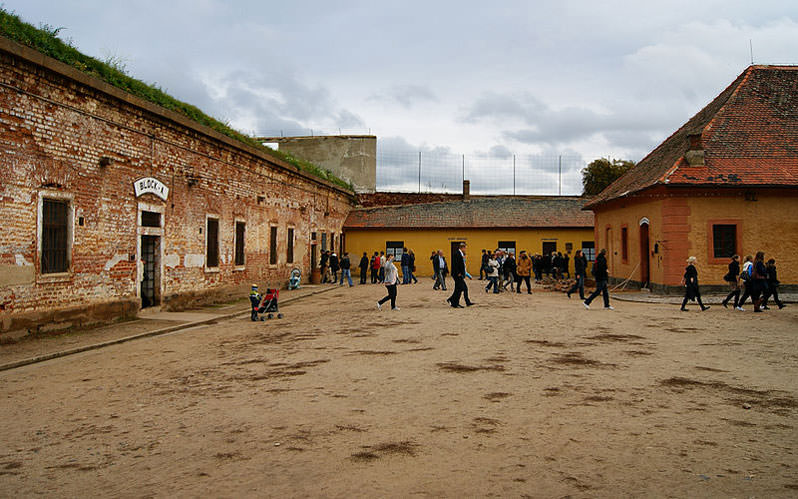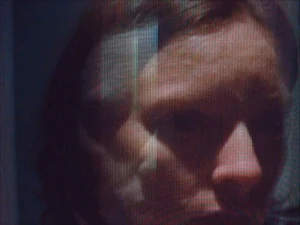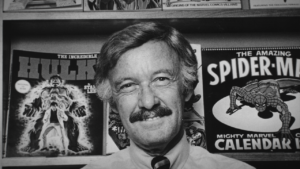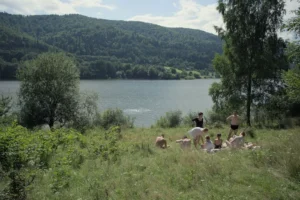Inside the Nazis’ Model Concentration Camp
Theresienstadt was a most peculiar institution It was created by the Nazis as a "model" camp -- "Hitler's gift to the Jews," as the saying went -- designed to placate the Red Cross and other international inspectors when they came calling It was created by the Nazis as a "model" camp—"Hitler's gift to the Jews," as the saying went—designed to placate the Red Cross and other international inspectors when they came calling. CherryX per Wikimedia Commons [CC-BY-SA-3.0], via Wikimedia Commons
CherryX per Wikimedia Commons [CC-BY-SA-3.0], via Wikimedia Commons
CherryX per Wikimedia Commons [CC-BY-SA-3.0], via Wikimedia Commons
“The Last of the Unjust” is a documentary film, nearly four hours in length, consisting of the recollections of a man named Benjamin Murmelstein that director Claude Lanzmann intended to include in “Shoah,” his nine-plus-hour film about the Holocaust. He determined that this material would radically unbalance that already overlong picture, so he saved it and has now brought it forth as a stand-alone feature that is much more hypnotic than it is tedious — though Lanzmann is a filmmaker who could, frankly, use a little more discipline in his choice of material.
Murmelstein, who died in 1989, was interviewed for a week in Rome in the 1970s. He was the last surviving head of the Judenrat, the council that administered, under Nazi supervision, the concentration camp at Theresienstadt near Prague in the last year of the war. A sometime rabbi, he was, and remains, a controversial figure. There are those who believe he was a collaborator who deserved punishment, if not execution, for his actions in this post. There are others who believe he saved hundreds of lives by his activities. All we can say with certainty is that he was never charged with war crimes when hostilities ended.
Theresienstadt was a most peculiar institution. It was created by the Nazis as a “model” camp — “Hitler’s gift to the Jews,” as the saying went — designed to placate the Red Cross and other international inspectors when they came calling. There exists chilling footage that shows its inmates playing soccer, peacefully singing songs and reading books — before their deportation to the death camps when their usefulness as propaganda tools came to an end. In this period, Murmelstein worked closely with Adolf Eichmann, and therein lies what “news” (to me, at least) this film has to offer. In his account this strange monster is very far from representing the “banality of evil.” He is, rather, a demon, implacably doing harm unhindered, so far as we can see, by any act of humanity or simple kindness. This portrait is entirely persuasive.
As is the whole film, which has a remarkable tone. The camp — that is to say its buildings — continues to exist, silent and forbidding. And it is the silence that haunts you. It has been now almost 70 years since the camp was closed, and as Lanzmann wanders its grounds, all anger, all horror seems drained from his reflections. It is almost as if he is visiting — I hate to say this — some forgotten playground: interesting and all that, but more a curiosity than a site of cruelties we cannot entirely comprehend.
If the film (its title is a play on the name of a well-known novel) has a flaw, it is in its calmness. I am not arguing for hysteria or the white heat of anger retained over the decades. It is perhaps time for understanding (certainly not anything resembling forgiveness). But those feelings do not flow. And I wonder, in fact, if they ever should.
What happened here was, in the end, simply too monstrous. And a group of tourists, caught in this film adjusting their faces to express the proper outrage, seems grotesque, inappropriate. The Holocaust is not yet something to tsk-tsk over. It never should be –especially now that its living witnesses are disappearing from the earth. But perhaps I’m being too — I don’t know — prissy. For the film “works.” I did feel outrage stir — despite (or perhaps because of) the way this film speaks of the unspeakable. That’s progress of a kind. And we must hope that it is not a prelude to forgetting.
Your support matters…Independent journalism is under threat and overshadowed by heavily funded mainstream media.
You can help level the playing field. Become a member.
Your tax-deductible contribution keeps us digging beneath the headlines to give you thought-provoking, investigative reporting and analysis that unearths what's really happening- without compromise.
Give today to support our courageous, independent journalists.






You need to be a supporter to comment.
There are currently no responses to this article.
Be the first to respond.